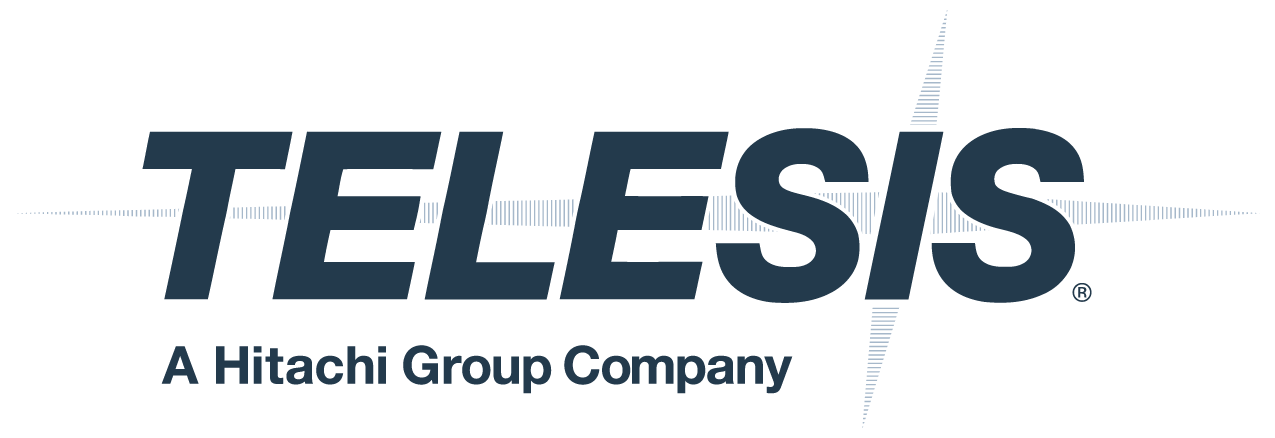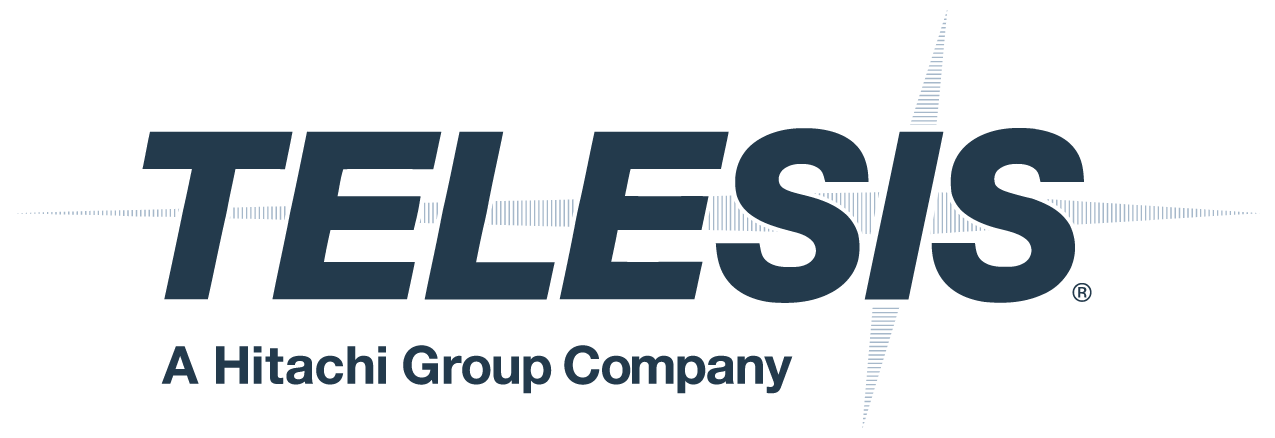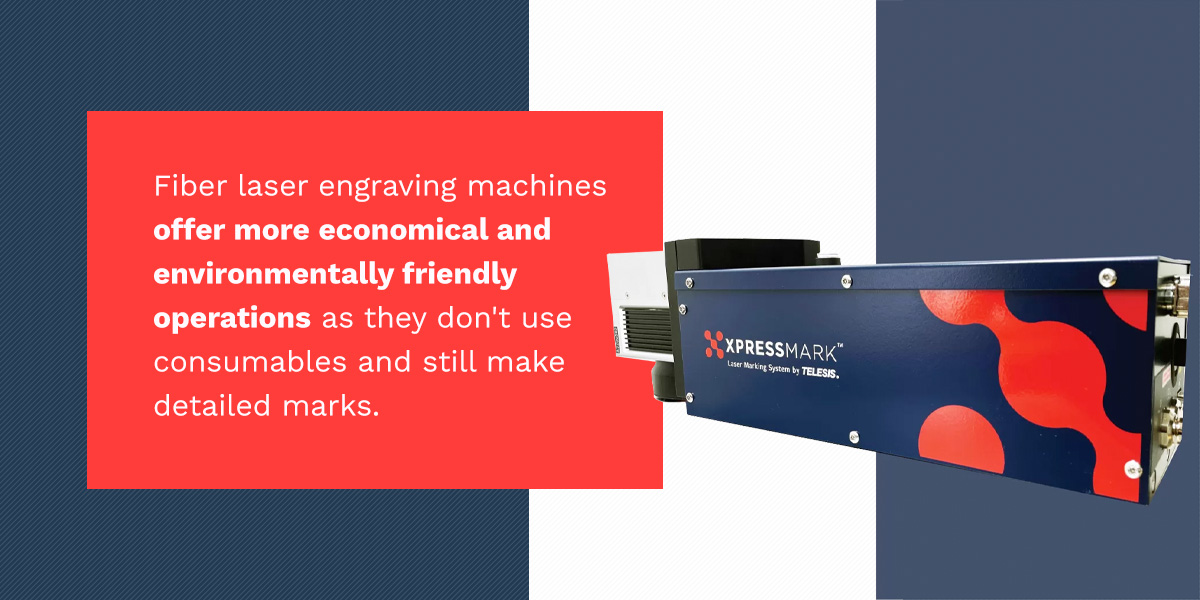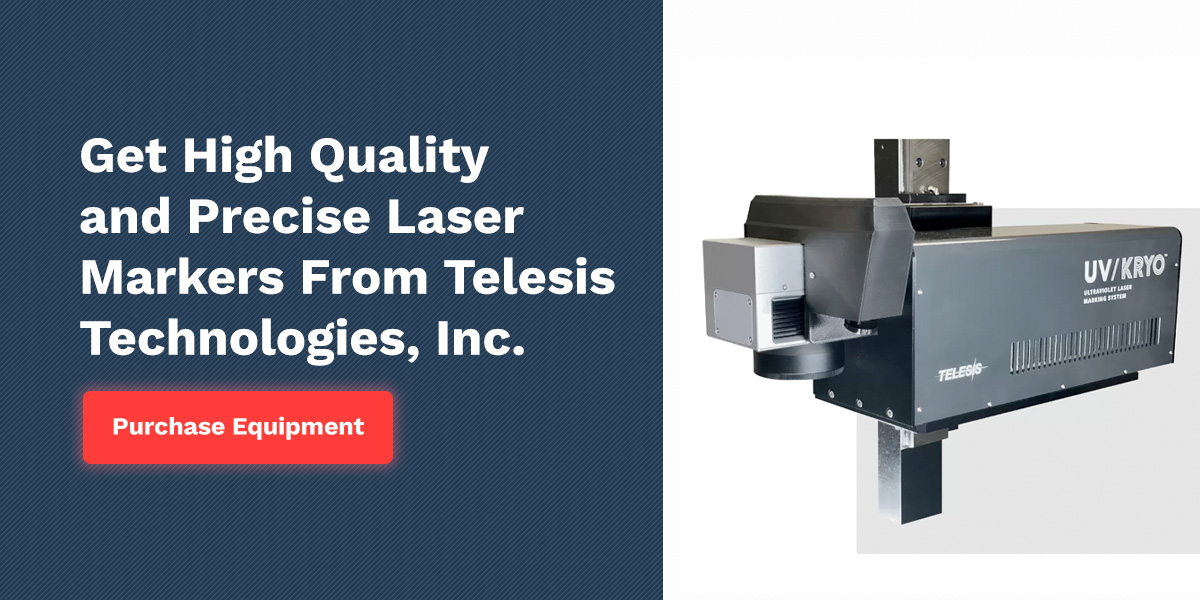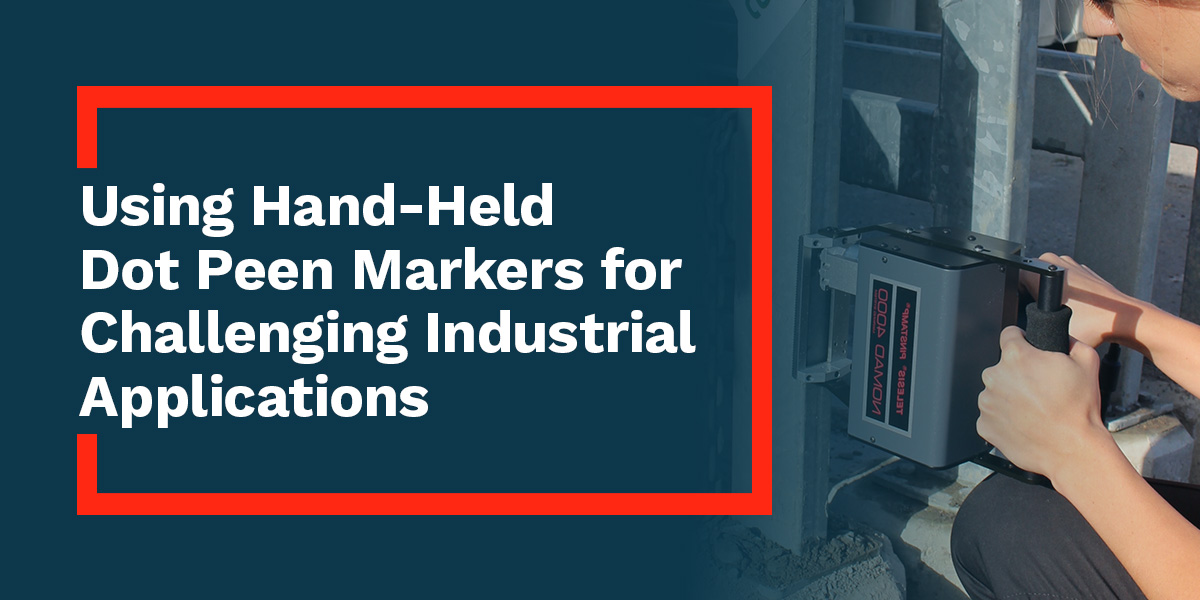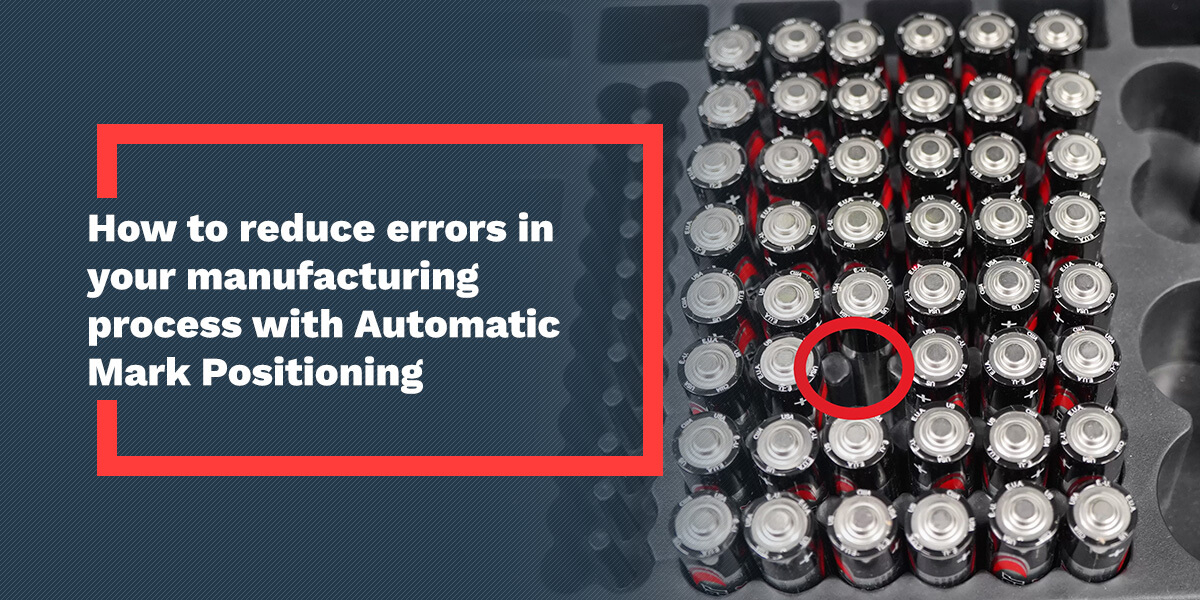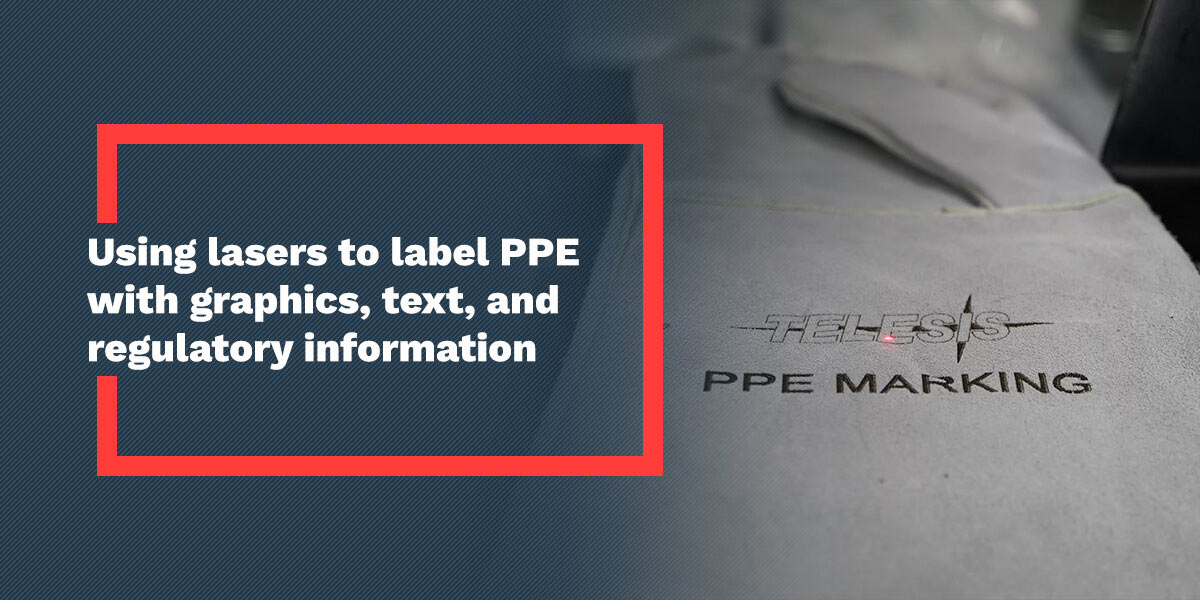
24 Jan Best Permanent Marking Machines for Aerospace and Defense
Permanent marking is crucial in the aerospace and defense sectors as it assists with tracking and identifying various components to ensure compliance with strict regulations. Every part, from fasteners to large structural elements, must have identification throughout its life cycle. Marking machines use different techniques to create precise and permanent markings on materials like metal and composites. These markings are durable, resistant to harsh environments and indispensable for tracing parts and conducting quality control.
With many machines on the market that make permanent markings specific to these industries, it is important to understand their nuances. Shedding light on the functionalities of each machine will help you decide which to employ in your organization to meet exacting requirements.
Traceability in the Aerospace and Defense Industries
Traceability is vital to enforcing safety measures and ensuring compliance and quality in the aerospace and defense sectors. Permanent markings for aerospace or defense equipment bring accountability, confidence and transparency that each component meets rigorous standards. Additional necessities of this process include:
- Tracing for recalls: If parts fail or fall under a recall for any reason, traceability allows for efficient recalls to mitigate safety risks.
- Industry compliance: Traceability in these sectors ensures the supply chain adheres to rules and regulations. Permanent marking lets manufacturers and operators track components to their point of origin, ensuring that these parts are certified and used in their intended application.
- Inspection and audits: Organizations in these sectors are subject to regular audits and inspections. Traceability provides clear trails for auditors to follow, allowing their processes to move along quickly,
- Reputation protection: Non-compliance with industry standards can result in hefty fines, reputational damage and legal sanctions. This leads to diminishing customer confidence in organizations within the aerospace and defense industries.
- Warranty and liability: Traceability also helps establish liability and warranty claims to ensure that manufacturers and suppliers are held accountable in an accident or failure.
Dot Peen Markers
Also known as dot peen engravers or dot marking machines, these devices conduct direct part marking. Dot peen marking involves hitting the surface of a substrate with a diamond or carbide pin, allowing it to make impressions on a range of hard surfaces, including plastics and metals. The high-frequency vibration of the metal punch or stylus creates a series of micro-points that form alphanumeric characters or outlines.
PINSTAMP®
PINSTAMP® dot peen markers feature floating pin technology, which offers the ability to create impressions on curved and asymmetrical surfaces effortlessly. Models like the PINSTAMP® TMM5400 make deeper marks more quickly using multiple pins.
BenchMark®
This line of dot peen markers is well suited for smaller tasks and everyday use. They typically come with user-friendly software that simplifies the creation of marking patterns, 2D codes, barcodes and logos. Models like the BenchMark320® are portable as it does not use an air compressor to operate.
Fiber Lasers
These are integral tools for marking barcodes, part numbers, serial numbers and more on stainless steel composites. Fiber laser engraving machines in aerospace and defense offer more economical and environmentally friendly operations as they don’t use consumables and still make detailed marks. Benefits to look forward to when you employ these machines include:
- High precision: Fiber lasers offer exceptional accuracy, perfect for creating delicate and detailed markings like QR codes.
- No-contact: Creating permanent markings with this laser involves no contact with the substrate. This benefit minimizes the risk of damage, especially to delicate components.
- Durability: Laser markings on stainless steel are highly resistant to wear, withstanding high temperatures and exposure to ultraviolet rays.
- Less maintenance: Fiber lasers require less maintenance than other permanent marking machines, as they have no moving parts. This means the machine experiences less downtime, saving time and overhead costs.
UV Lasers
Ultraviolet (UV) lasers use high-energy UV laser beams to etch markings on various materials. These markings often have high contrast properties, giving them decent legibility. UV lasers are cold lasers, meaning they generate minimal heat. This characteristic makes them ideal for work that involves heat-sensitive materials. Key selling points about using UV lasers in the aerospace and defense sectors are:
- High quality: These laser beams have a smaller focus spot, allowing them to create ultra-fine data matrix codes, text and logos.
- Thermal effects: This technology minimizes heat-affected zones during marking, producing no thermal effects or material scorching.
- Impressive speed: The operational speed of these lasers is incredibly fast, ensuring high efficiency to enhance productivity with lower power consumption as an added benefit.
- Various applications: These engraving machines can mark materials like steel, plastics, metals, wood, glass and even paper.
CO2 Lasers
These machines offer versatility and precision. C02 lasers operate using a carbon dioxide gas mixture. When electricity stimulates the machine, it emits a high-power infrared laser beam to create markings on a substrate’s surface. This causes localized heating and vaporization that permanently mark the substrate. Key points about these lasers as permanent markers include:
- Non-intrusive marking: The structural integrity of the component marked using a CO2 laser engraving in the defense industry remains intact as this machine is non-intrusive.
- Flexibility: These devices can be used for on-the-fly marking or as a stationary permanent marking machine.
- Cost efficiency: The initial cost of these lasers may come in at lower prices than alternative permanent marking devices.
- Versatile: CO2 lasers can be engraved onto various materials, including wood, paper, ceramics and rubber.
- Speed efficiency: These lasers are fast and powerful, contributing to increased productivity. They are often used in high-duty cycle and industrial operations.
Get High Quality and Precise Laser Markers From Telesis Technologies, Inc.
The aerospace and defense sectors require unwavering attention to detail, and permanent marker machines help track those details. Whether it is the rugged durability of dot peen markers, the remarkable precision of CO2 lasers, the no-contact benefits of fiber lasers or the impressive speeds UV lasers offer, these machines contribute to component safety, transparency and reliability.
Telesis Technologies, Inc. has the aerospace and defense industry permanent marking machines your applications need. Our equipment is of the highest standards, allowing your organization to engrave logos, serial numbers, QR codes, dates and more onto all your components. Contact us today to talk to an expert, or purchase your laser and dot peen markers on our website at your convenience.

